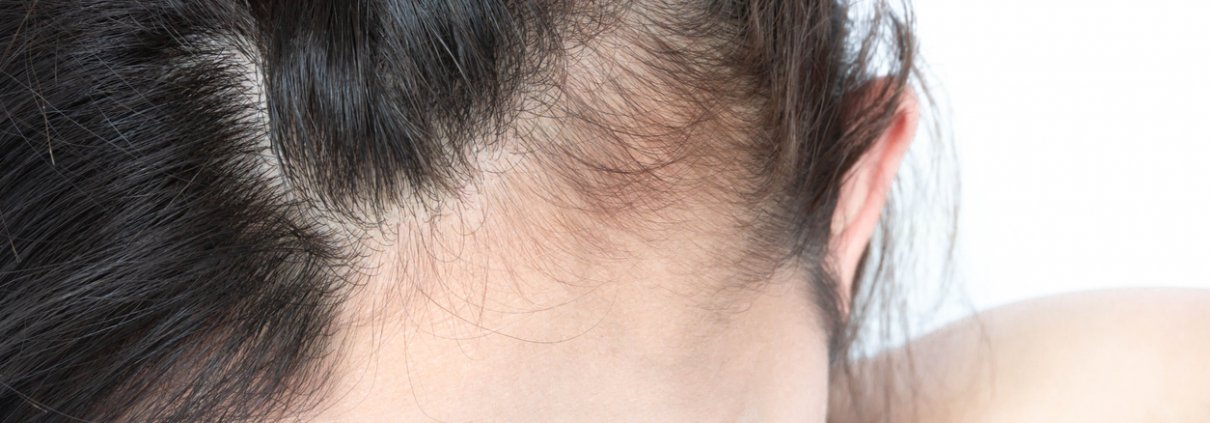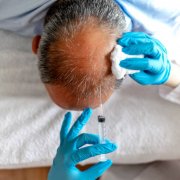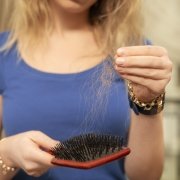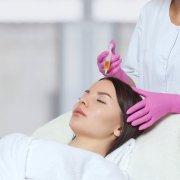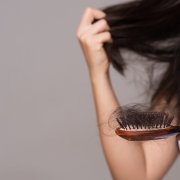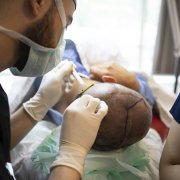Why Hair Loss Occurs
Hair loss is a major concern for both men and women, as it’s directly attributed to aging, which is a process that can sometimes be hard to deal with.
Research shows that more than 40% of a surveyed population suffered from extensive hair loss, of which 16% were ranging from 18 – 29 years of age and 53% were 40 – 49 years of age.
While hair loss is a part of our aging process, some factors are directly associated with progressive hair loss. These factors include emotional stress, genetic causes, and some diseases and medications.
Why Do We Lose Hair?
Hair loss is naturally occurring. We shed 50 to 100 hairs on a daily basis, but you usually don’t notice this because new hair is growing all the time. It becomes noticeable when there is less new hair growth than hair shedding.
In order to understand the causes of hair loss, you need to know about the hair loss cycle.
Hair Loss Cycle
The human hair loss cycle includes 3 phases:
- Anagen (growth):
This is the phase of active hair growth. Cells proliferate rapidly at the base of the hair and the matrix starts migrating outwards. In a non-balding, healthy scalp, 90% of hair follicles are in this phase at any given time. It extends for 2 to 7 years.
- Catagen (loss):
This is a short, transitional phase where hairs begin to separate from their dermal root to be held in place by a thin strand of connective tissue. This phase lasts 1 to 3 weeks.
- Telogen (rest):
The basal attachment of the hair shaft becomes more weak due to matrix regression, leading to the hair shaft falling out. A healthy scalp usually remains in this phase 10% of the time. It lasts for about 3 to 4 months.
Causes of Hair Loss
Hair loss is usually associated with one or more of the following causes:
- Genetic Factor (heredity)
The most common cause of hair loss is a hereditary condition called androgenic alopecia. This is a condition caused by excessive response to androgens, affecting up to 50% of males and females leading to a characteristic hair loss pattern. In men, hair loss is mostly in the vertex and the hairline, while in women the crown area is more often affected.
- Hormonal Changes:
The hair loss cycle is highly affected by hormonal changes. It was found that hormones like androgens, such as dihydrotestosterone, play a very important role in transforming short, vellus body hair into full grown terminal hair. Also, the effect of estrogen and progesterone on the hair cycle is undeniable, as many women experience post-menopausal hair thinning or hair loss due to estrogen and progesterone depletion.
- Medical Conditions:
Medical conditions that cause hair loss include alopecia areata, an immune disorder causing hair loss, scalp infections, and trichotillomania, which is a hair-pulling disorder.
- Emotional Stress:
Recent research confirms the popular belief of stress being directly linked to hair loss. It was found that stressful events can have an inhibitory effect on hair growth and can induce the catagen phase of the hair cycle.
- Medications:
Hair loss can be a side effect to medication such as chemotherapy (known as anagen effluvium), anti-depressants, gout medications, and medications used with vascular disorders.
- Excessive Use of Hair Products:
Heavy usage of hair products can cause hair damage. Also, hairstyling in a way that pulls your hair, such as pigtails or tight braids, can also cause hair loss.
Hair Doctor in Kansas City, Des Moines, IA, MO
If you have concerns about hair loss, you can contact us at (816) 792-3400. Our staff would be more than happy to answer all your questions and recommend the perfect treatment for your specific hair thinning condition. You can also use our online form to request an appointment. We look forward to serving you!

